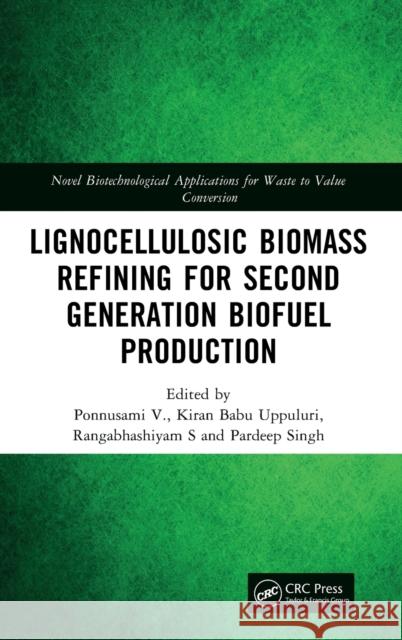Lignocellulosic Biomass Refining for Second Generation Biofuel Production » książka
Lignocellulosic Biomass Refining for Second Generation Biofuel Production
ISBN-13: 9781032067001 / Angielski
Lignocellulosic Biomass Refining for Second Generation Biofuel Production
ISBN-13: 9781032067001 / Angielski
(netto: 650,37 VAT: 5%)
Najniższa cena z 30 dni: 604,49
ok. 16-18 dni roboczych.
Darmowa dostawa!
This book compiles research aspects of second generation (2G) biofuel production specifically sourced from lignocellulose biomass with the direction of biorefinery means. It focusses on the valorization of different sources of 2G biofuels and their relative importance. The constituents of lignocelluloses and their potential characteristics, end utilization of biofuel from production are discussed. Different means of treatments of lignocellulose through physical, physio-chemical, microbial, and enzymatic approaches are also included.Features:Describes technological advancements for bioethanol production from lignocellulosic waste.Provides the roadmap for the production and utilization of 2G Biofuels.Introduces the strategic role of metabolic engineering in the development of 2G biofuels.Discusses technological advancements, life cycle assessment, and prospects.Explores the novel potential lignocellulosic biomass for 2G biofuels.This book is aimed at researchers and professionals in renewable energy, biofuel, bioethanol, lignocellulose conversion, fermentation, and chemical engineering.
This book compiles research aspects of second generation (2G) biofuel production specifically sourced from lignocellulose biomass with the direction of biorefinery means. It focusses on the valorization of different sources of 2G biofuels and their relative importance. The constituents of lignocelluloses and their potential characteristics, end utilization of biofuel from production are discussed. Different means of treatments of lignocellulose through physical, physio-chemical, microbial, and enzymatic approaches are also included.
Features:
- Describes technological advancements for bioethanol production from lignocellulosic waste.
- Provides the roadmap for the production and utilization of 2G Biofuels.
- Introduces the strategic role of metabolic engineering in the development of 2G biofuels.
- Discusses technological advancements, life cycle assessment, and prospects.
- Explores the novel potential lignocellulosic biomass for 2G biofuels.
This book is aimed at researchers and professionals in renewable energy, biofuel, bioethanol, lignocellulose conversion, fermentation, and chemical engineering.











